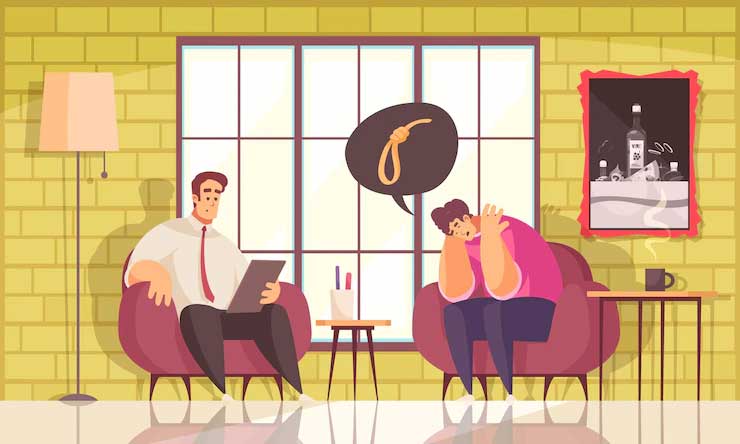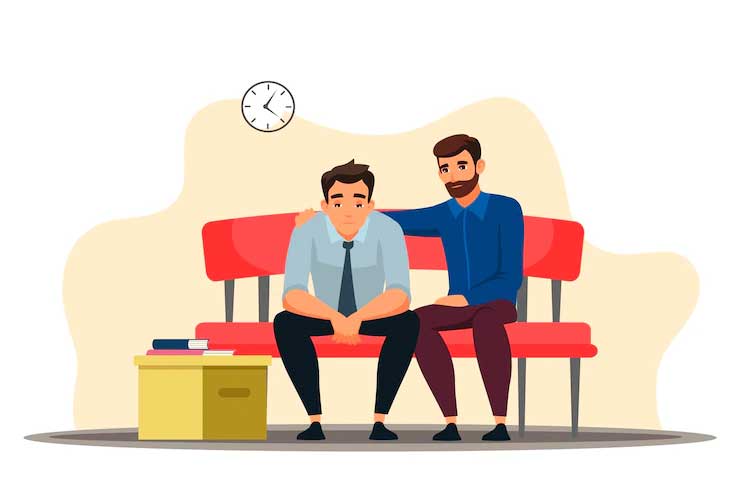In the U.S., suicide is one of the most common causes of death. And the rate is constantly rising. The data from CDC’s (Centers for Disease Control and Prevention) National Center for Health Statistics indicate numbers that represent:
- In 2020, a total of 45979 people died by suicide in the United States.
- That means 1 death every 11 minutes.
- In 2022 for males, age-adjusted suicide rates increased up to 3% from 2020 (22.0 per 100,000) to 2021 (22.7). In which 8% increase was only from the age-group 15-24 (22.4 to 24.)

You can check all this data on CDC’s official website. The major cause of death among these suicide cases was depression or a mental health issue. On one hand, we are advancing in so many ways to treat a patient whereas, on the other hand, people do not really give much importance to maintaining mental wellness. Depression became a taboo for people to talk about. Hence at Texas Specialty Clinic, you can get a mental health diagnosis and start the required treatment.
What are Suicidal Thoughts?
Taking your own life can be a sign of undergoing mental illness that should not be avoided if there are any visible symptoms. Suicidal thoughts are hard to identify from normal thoughts because some people just casually talk negatively about themselves which ends the seriousness of the issue, here is the time we need to pay more attention and should talk more about it to get through them.
The behavior of the persons having suicidal thoughts can be different from each other but can be summarized:
- Intentionally talking about suicide for example; “I’m gonna kill myself”, “Wish I was dead”, or “I hadn’t been born”.
- Having items that can take life.
- Hopelessness, feeling unworthy
- Tearful and overwhelmed by feelings
- Feels secluded by people
- The trapped and hopeless feeling
- Either sleeping more or insomnia and eating disorders
- Self-destructive habits
- Fascination towards death
- Addicted to alcohol and drugs
- Feels that people are good without them
- Desperation
- Anxiety and anger outbursts
- Sudden calmness
- Unbearable pain
- Frequently thinking about death, suicide
- Trouble in thinking, making decisions, and unable to focus
- Nothing interests them
All these symptoms occur when a person has suicidal thoughts which is also a sign of depression. The feeling to isolate themselves from everywhere is begin to linger in their minds and then soon grow into depression.
If you find someone phasing out or is in the initial state of depression consult them with a mental therapist or ask someone to help out. You can also call Texas Specialty Clinic to check their current mental state.

What can be the causes of having suicidal thoughts?
Suicidal thoughts that lead to depression can be seen if one pays keen attention to the patient. The causes of having these self-killing thoughts can be many that eventually leads to depression. Feeling overwhelmed by the going on situations in life can be the reason. When a person feels that he/she can not cope with the feeling, does not able to see a path ahead, lost the motivation to live his/her life again, and others all these can be reasons for suicide attempts.
There are some genetic links too in the family history that can pass on to the depressed person.

What can you do to help those suicidal feelings?
While going through suicidal thoughts you can feel that there is no way you can get through it. But it is not true. You can always ask for help and should not shy away from it. By asking for help you can cope with the suicidal feeling that pushes you more into depression. There are the following ways:
- Ask for support from your GP (General Practitioner)
- Try the helpline and listening services
- Talk with your friends and family or seek a peer support
- Talking therapies or sessions
- Medication
- Crisis services
You can also fix an appointment with a consultant and discuss your condition and current thoughts. If your close one has attempted suicide dial the emergency number 911.

If you are seeing signs of getting into depression consult the Texas Specialty Clinic for a real-time diagnosis of your mental health. To book an appointment call (469)545-9983.
